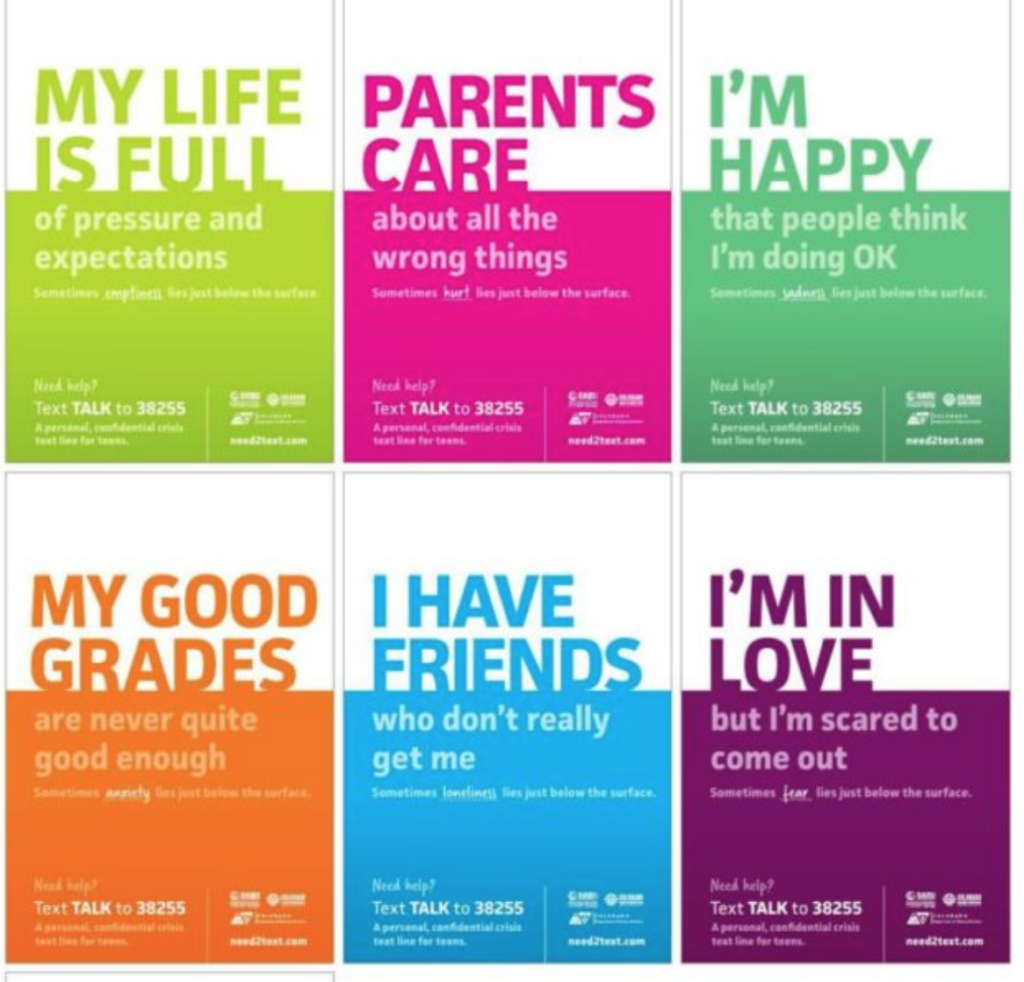Sometimes, the signs are clearly visible—people can read you like a book. Other times, no one can even guess what you’re struggling with inside.
This dichotomy was the inspiration behind Colorado’s new statewide mental health campaign, “Below the Surface.”
This attention-grabbing awareness campaign stemmed from a wave of student suicides in high schools around Colorado Springs, which kept happening one right after another. In just one high school, in the span of two weeks, four students took their own lives. Over the span of a year, fifteen county children committed suicide.
In response, their friends felt like they had to do something. In 2016, nine Colorado Springs teens organized a poster campaign in collaboration with NAMI (the National Alliance on Mental Illness).
Below the Surface
As reported by the Colorado Sun, the campaign was titled Below the Surface to highlight the fact that many teens struggle with difficult emotions underneath the happy-looking faces they show to the rest of the word.
NAMI’s Colorado Springs branch, which funded the campaign, hired a graphic design agency to create posters, stickers, and cards inspired by the nine high school teens they were working with. The messaging emphasizes the fine line between “doing okay” and needing help. Between what other teens see (“I HAVE FRIENDS”) and one’s own internal struggles (“…who don’t really get me.)

Each poster is based on a true adolescent experience. The nine high school students sat together with NAMI and the design team to share their own struggles (as well as their friends’). The result? Messaging that was honest, candid, and appealed directly to the teens themselves. The campaign is thus unique in its authenticity.
Raising Awareness to Seek Help
The goal of the campaign was twofold. First, open the conversation about common emotional triggers for teens. Second, spread awareness about Colorado Crisis Services’ anonymous crisis phone/text line. The marketing materials urged students to contact the free crisis line to get professional help for anxiety, depression, relationship issues (such as family/friend conflicts, LGBTQ struggles), and more.
The campaign was so successful that it received the government’s attention.
The Colorado Department of Human Services’ Office of Behavioral Health recently adopted the program and expanded it statewide. They have reason to: Colorado has some of the highest teen suicide statistics among the country. In Colorado suicide is the leading cause of death for teens ages 10-24, while throughout the rest of the country it is the second.
However, there’s good news, too. According to the Healthy Kids Colorado Survey, adolescents who have an adult to go to for help are 3.5 times less likely to attempt suicide. And kids themselves say they wish adults would be more open with them in talking about suicide and depression.
Check out the posters from the campaign below, which can now be seen across Colorado schools statewide. And remember, if you’re struggling, text TALK to 38255.







